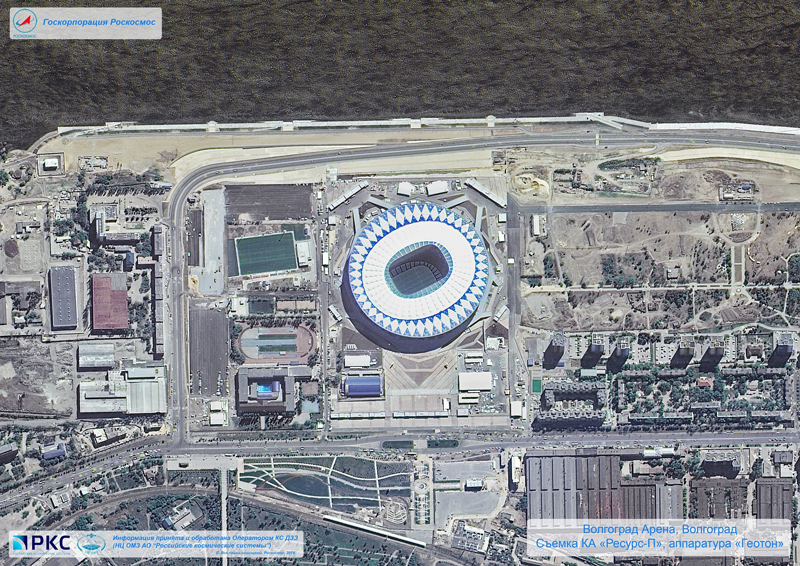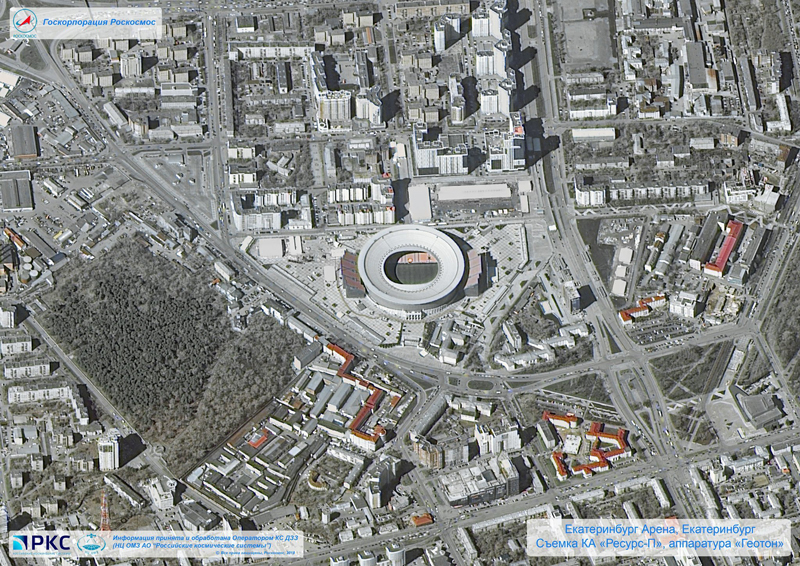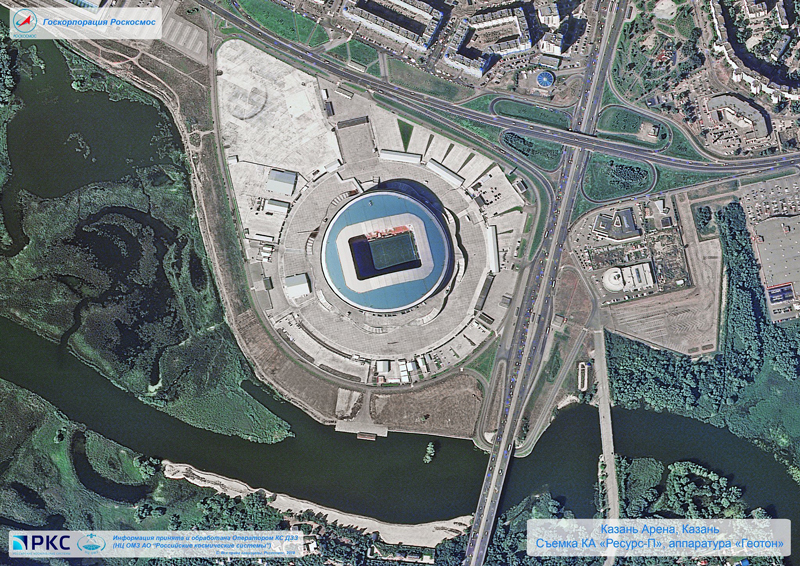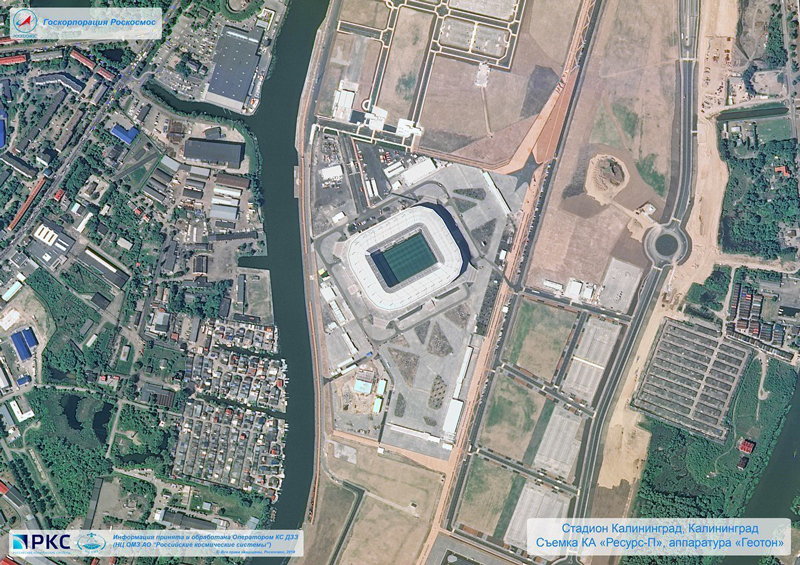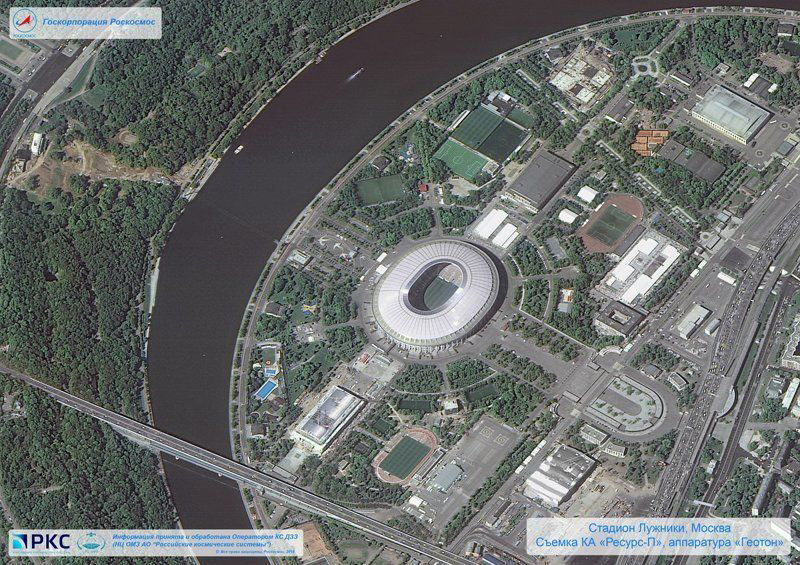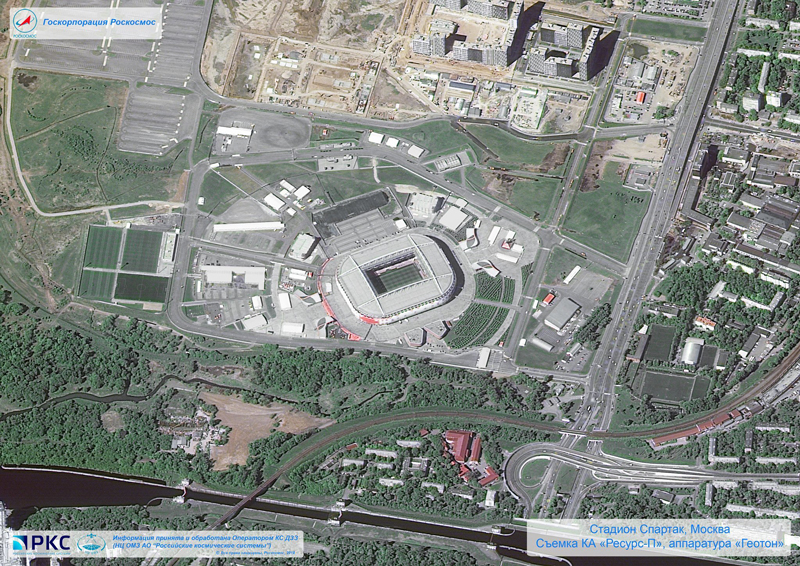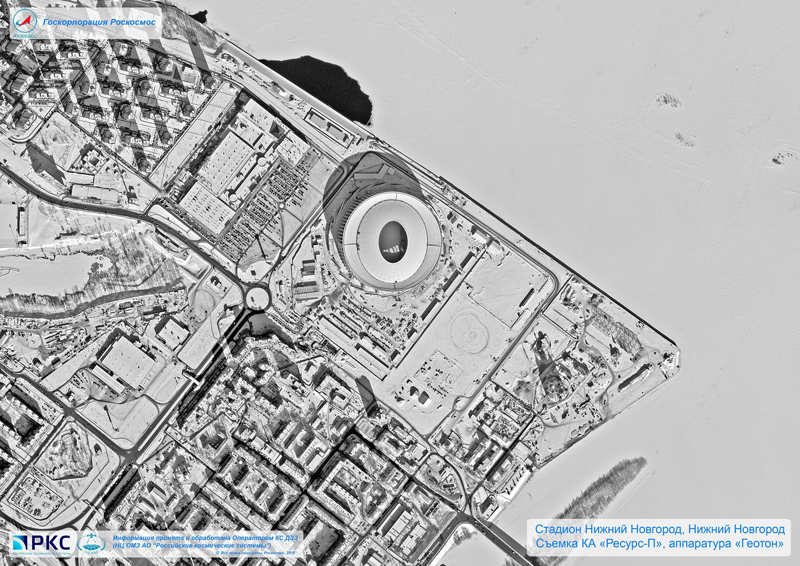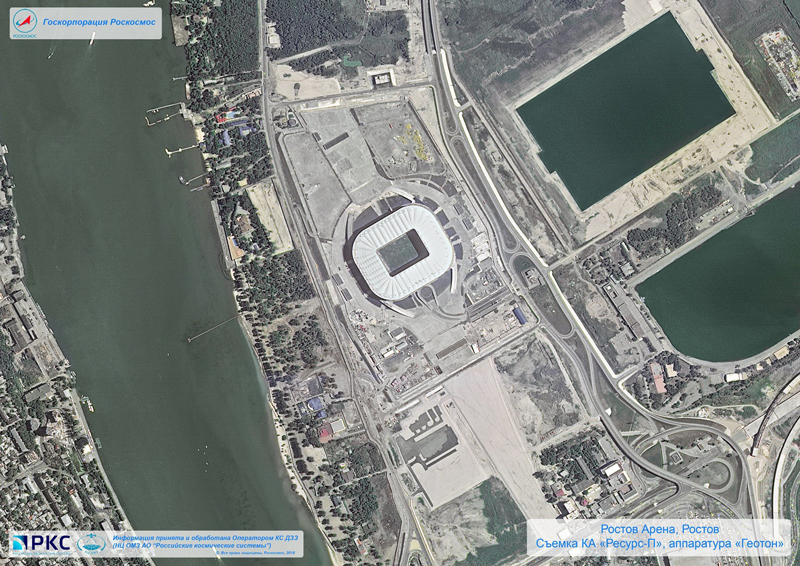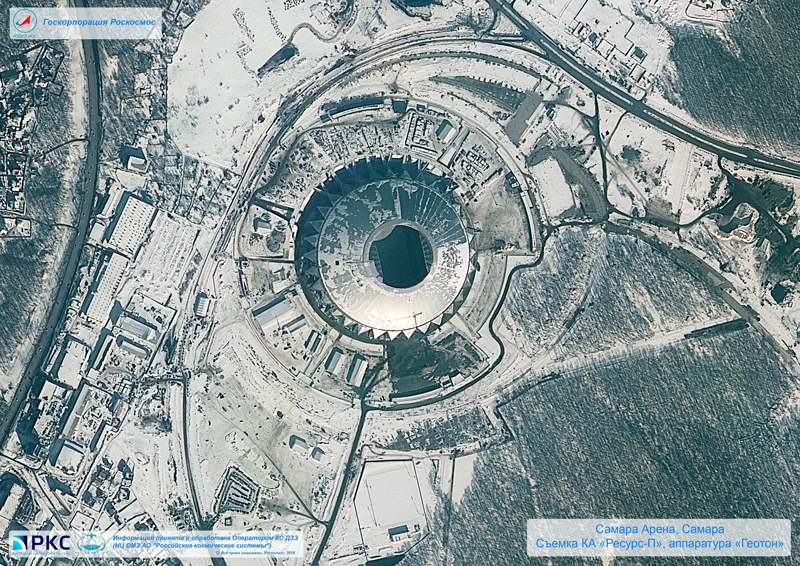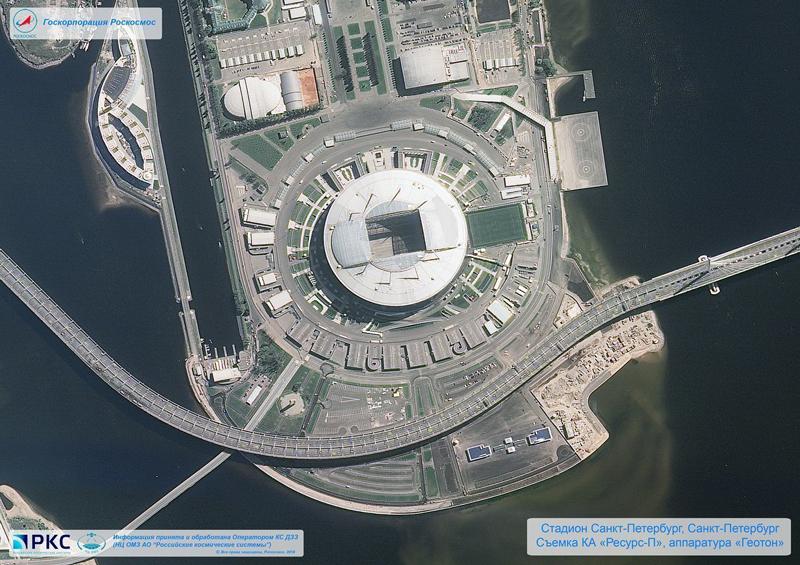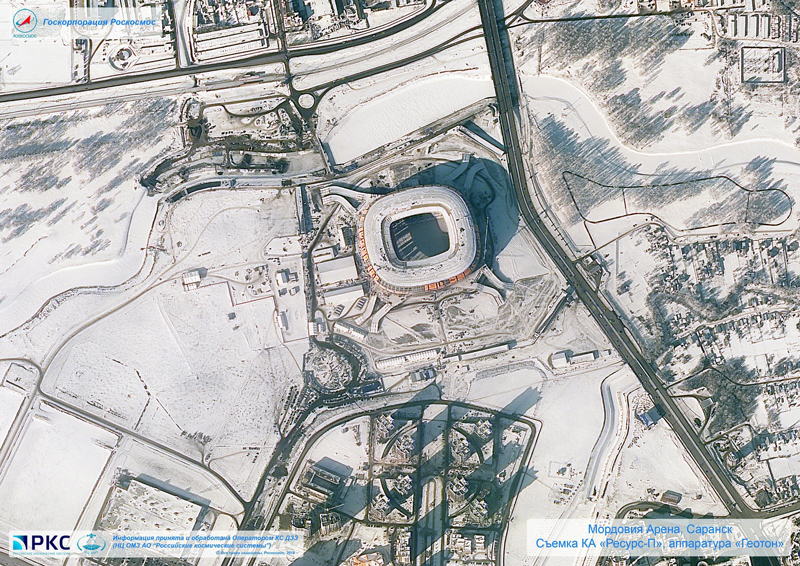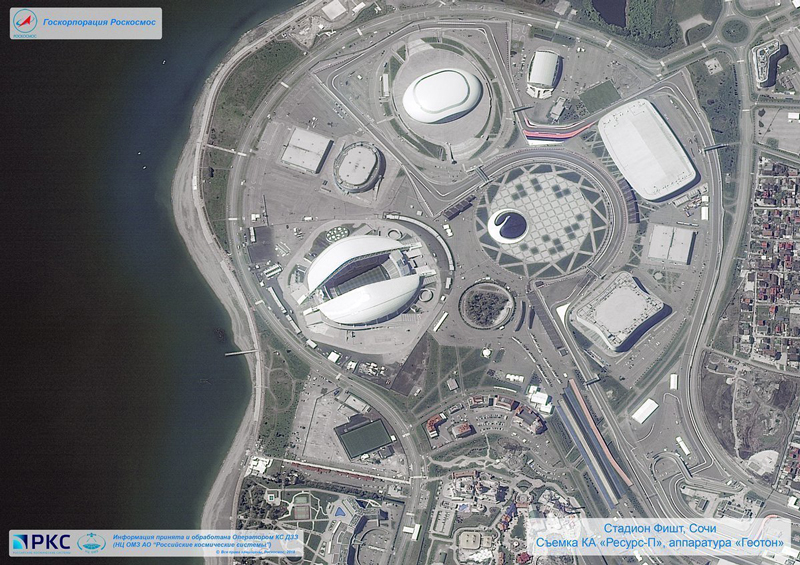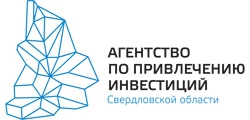We offer you a selection of satellite images of the 2018 FIFA world Cup stadiums made by the Russian spacecraft Roscosmos - Resurs-P
Volgograd Arena
"Volgograd arena" is located on the site of the stadium "Central" on the banks of the Volga river near Mamayev Kurgan. Capacity of 45 000 seats.
Ekaterinburg Arena
The stadium was built in Ekaterinburg within the former stadium "Central". The name for the 2018 world Cup is "Ekaterinburg arena". The stadium will accommodate 35,000 spectators during the 2018 world Cup, after which the number of seats will be reduced to 25,000.
The history of the stadium from a bird's eye view
Kazan Arena
The stadium was built shortly before the beginning of active preparation for the World Cup. Designed for 45 thousand spectators. Home arena of Kazan "Rubin". In 2018, there will be group matches, one of the games of the 1/8 finals and one of the quarterfinals of the 2018 world Cup.
Stadium In Kaliningrad
One of the most "problematic" objects of the application. The project has been modified several times. A complex project due to the unstable soil, where special piles are used. It will accommodate 35 thousand spectators, and after the competition — 25 thousand At the "Kaliningrad Stadium" will be group matches of the 2018 world Cup.
Luzhniki Stadium, Moscow
The largest stadium in Russia. It was opened in 1956. The capacity of Luzhniki during the World Cup will be 81 thousand seats. Located near the Olympic Park of the same name near the Sparrow hills. At the time of the 2018 world Cup, the stadium will not change its name.
Spartak Stadium, Moscow
The only stadium of the 2018 FIFA world Cup in Russia, built on the money of a private football club. The owner of "Spartak Stadium" is the President of the club of the same name Leonid Fedun. The stadium is called "Opening arena" — named after the sponsor of the club, but at the time of the 2018 world Cup it will be called "Spartak Stadium". It is the home arena of the Moscow "Spartacus".
Stadium, Nizhniy Novgorod
One of the Central arenas of the tournament. Built on the arrow of the rivers Oka and Volga. The stadium in Nizhny Novgorod will host not only group matches, but also the games of the playoff stage of the 2018 world Cup. In total, the arena will host six matches, including 1/8 and 1/4 finals of the tournament.
Rostov Arena, Rostov-na-Donu
The stadium for the 2018 FIFA world Cup is being built on the left Bank of the don. The arena will host four matches of the group stage and the match of the 1/8 finals of the World Cup in Russia. The official name is "Rostov arena". The capacity of the stadium is 45 thousand seats.
Samara Arena
The stadium is being built in Samara near the villages of radio Center and Sorokina Farm. One of the Central arenas of the tournament, which will host not only group matches, including the match of the Russian team against Uruguay, but also the games of the playoff stage of the 2018 world Cup.
Stadium St. Petersburg
One of the oldest "protracted" Russian football, the most expensive, modern and innovative stadium in Russia. It is equipped with a sliding roof and a pull-out field. The stadium can accommodate up to 69 thousand seats. During the 2018 world Cup, the stadium will host group matches, one semi-final and a match for 3rd place.
Arena Mordovia, Saransk
In Saransk to the world Cup 2018 stadium build "Mordovia arena" on 45 000 visual. At the end of the tournament, the temporary stands will be dismantled and the capacity of the building will be 30 000 spectators, and the stadium will become the home arena for the local football club "Mordovia".
Fisht Stadium, Sochi
It was built for the 2014 winter Olympics in Sochi, where the opening and closing of the games took place. Reconstruction was carried out for the 2018 world Cup. It seats 40 thousand spectators, but after the 2018 world Cup, it will reduce the number of seats to 25 thousand. There will be group matches and one of the games of the 1/8 finals of the 2018 world Cup.
The history of the stadium Ekaterinburg Arena from a bird's eye view
On materials: ru2018.org,
Space imagery: «Resource-P» (Roscosmos), DigitalGlobe, Yandex.

